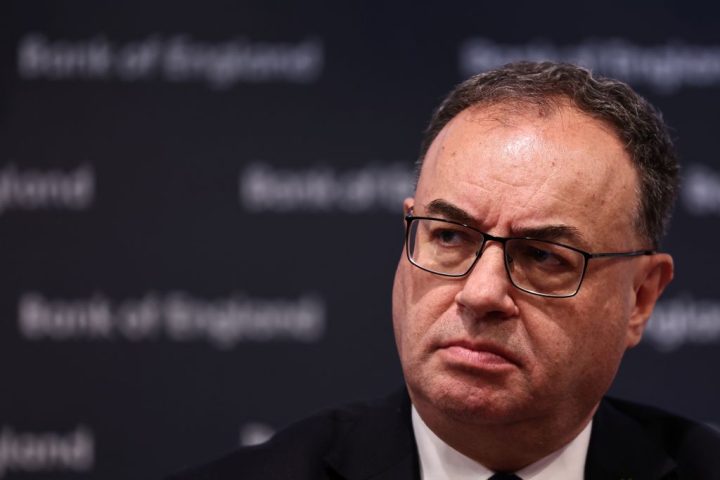Should we bother taking any notice of what Andrew Bailey says about inflation, given that he and his colleagues on the Monetary Policy Committee (MPC) failed miserably to foresee any of the inflationary forces of the past two years? As late as May 2021 they were still predicting that the Consumer Prices Index (CPI) would rise no higher than 2.5 per cent at the end of 2021 before falling back to 2 per cent.
For what it is worth, the Governor of the Bank of England has come over all pessimistic. Addressing the Treasury Select Committee this morning he said markets have got it wrong: they are putting too much emphasis on last week’s fall in CPI from 6.7 per cent to 4.6 per cent and are failing to realise that inflation will be around for longer than they think. ‘We are concerned about the potential persistence of inflation as we go through the remainder of the journey down to 2 per cent and I think the market is underestimating that,’ he said.
Will wages start to drag prices up again as more money flows into consumer pockets?
Markets, you might think, would hinge on a Governor’s word, especially when put as strongly as that – there was, after all, a time when markets might have moved on a governor’s raised eyebrow. But it is a little unflattering to Bailey that markets seem to be unmoved by his words. The FTSE100 is down a bit, but the fall occurred early this morning before Bailey had taken his seat. Bond yields have actually fallen a little, suggesting that markets have revised downwards their expectations for future rates.
Bailey might not be much of a visionary, but he and the MPC do still have their hands on the interest rate tiller. Therefore, if Bailey is hinting that rates are unlikely to fall next year, as markets expect them to, then there seems a strong chance that they won’t.
Moreover, there is always the possibility that Bailey might actually be right this time – and that inflation really will remain persistent. The data which took a bit of a back seat last week was that on median earnings, which the Office for National Statistics (ONS) says are up 7.7 per cent over the past 12 months. That marks an extraordinary turnaround in a very short space of time.
Earlier in the year, workers seemed to be getting worse and worse off as their earnings failed to keep pace with inflation. Now, with CPI at 4.6 per cent we suddenly seem to have wages rising in real terms at over 3 per cent – less a cost of living crisis than a cost of living bonanza.
This is not going to be sustainable at a time when productivity growth is extremely sluggish. In fact, according to the ONS, output per worker in the third quarter was down 0.1 per cent on the same period in 2022 while output per hour worked was down 0.3 per cent. Inflation, needless to say, is the mechanism which prevents us getting something for nothing: if we keep paying ourselves more without producing more, inflation will make sure we don’t really get richer.
You might expect wages to lag behind inflation: if employees see prices racing ahead in the shops they might expect to demand higher wages, or move to jobs which offer more. But it will take time for wage rises to respond.
The question now is what will happen to wages over the next few months: will they follow the fall in inflation, or will they start to drag prices up again as more money flows into consumer pockets, thus sparing the dreaded wages-prices spiral? Any tax cuts in tomorrow’s Autumn Statement could also boost consumer prices. On this occasion, I wouldn’t be confident in Andrew Bailey turning out to be wrong.







Comments